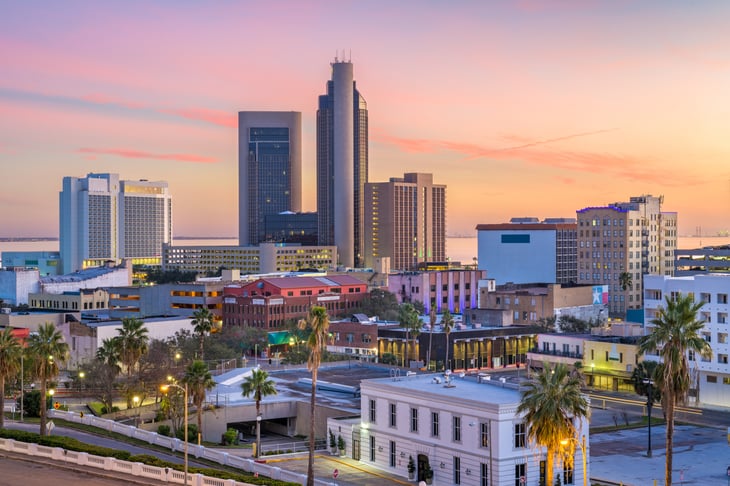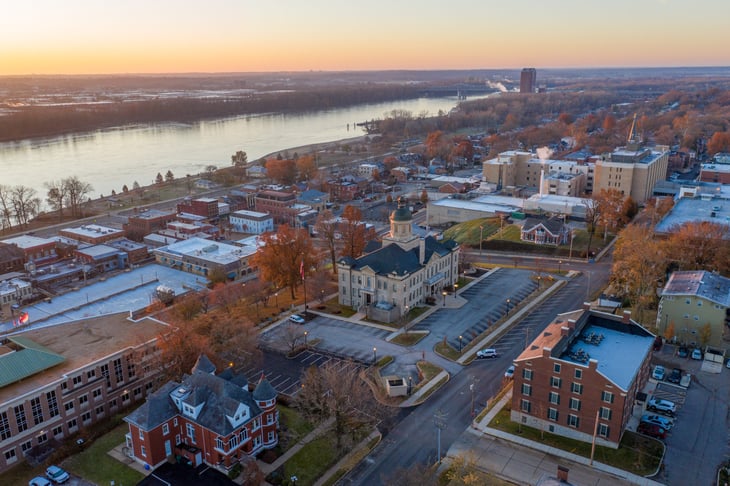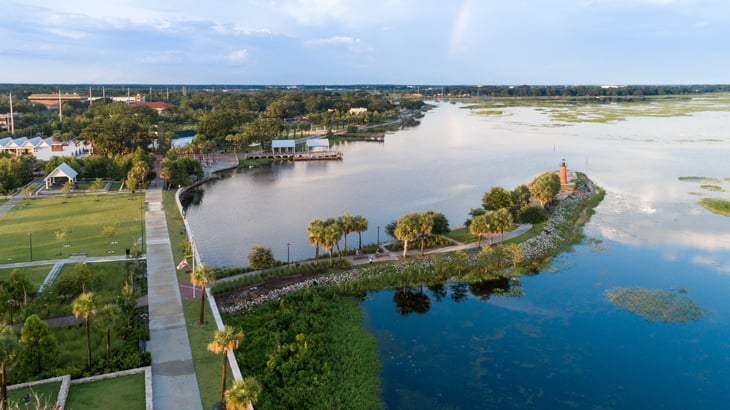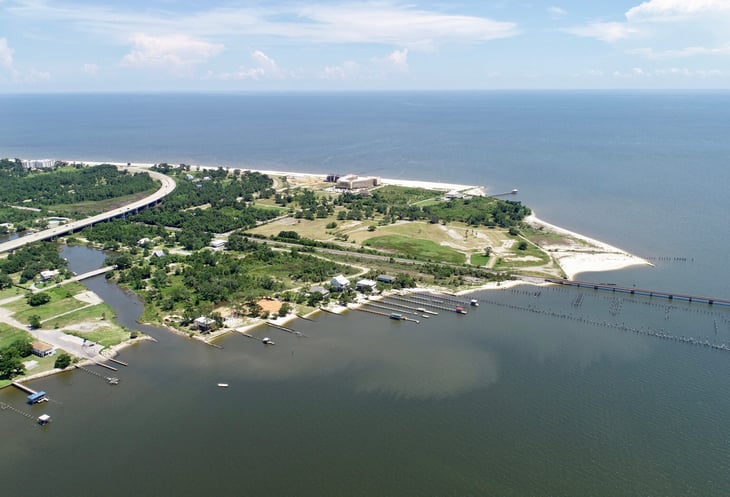
Editor's Note:
Cryptocurrency (or “crypto”) refers to digital currencies that can be used to buy regular goods and services. But instead of relying on paper money or banks to complete transactions, cryptocurrencies make use of a decentralized online ledger to verify transactions.
Cryptocurrencies can be bought through exchanges using traditional currencies. But many can also be earned through a process called “mining,” which requires specialized software to solve complex mathematical problems.
Successful crypto mining depends on good computing power and is extremely energy-intensive. For example, a single bitcoin transaction is estimated to use nearly 2,000 kWh of electricity — enough to power the average U.S. household for over two months.
The crypto market has boomed during the COVID-19 pandemic. For example, bitcoin could be purchased for less than $6,000 in the early days of the pandemic and rose to over $63,000 in April of 2021, a nearly 10-fold increase in price.
As interest in trading cryptocurrency increases, so does interest in mining. While bitcoin mining has become extremely difficult, mining other crypto coins is much easier. Because crypto mining is so energy-intensive, living in an area with low electricity rates makes mining more profitable.
Residents of states with no state income taxes or low state income tax burdens will pay less in taxes on gains realized on the sale or exchange of currencies, which are treated as capital assets.
To find the best states to mine cryptocurrency, researchers at Commodity.com analyzed data from the U.S. Census Bureau, the U.S. Energy Information Administration, the Bureau of Economic Analysis, and HighSpeedInternet.com, creating a composite score based on the following factors:
- State income tax burden
- Electricity rates
- Cost of living
- Percentage of households with broadband internet
- Average internet speed
Here are the best states for mining cryptocurrency.
15. Wyoming

Composite score: 59.75
State income tax burden: 0.0%
Electricity rates (cents per kWh): 11.2
Cost of living (compared with average): -7.2%
Percentage of households with broadband internet: 66.7%
Average internet speed (Mbps): 60.0
14. Utah

Composite score: 61.25
State income tax burden: 2.2%
Electricity rates (cents per kWh): 10.6
Cost of living (compared with average): -3.5%
Percentage of households with broadband internet: 75.6%
Average internet speed (Mbps): 93.0
13. Texas

Composite score: 62.75
State income tax burden: 0.0%
Electricity rates (cents per kWh): 12.0
Cost of living (compared with average): -3.5%
Percentage of households with broadband internet: 67.6%
Average internet speed (Mbps): 110.7
12. Arkansas

Composite score: 63.25
State income tax burden: 2.0%
Electricity rates (cents per kWh): 10.4
Cost of living (compared with average): -15.3%
Percentage of households with broadband internet: 55.6%
Average internet speed (Mbps): 64.9
11. Missouri

Composite score: 63.50
State income tax burden: 1.9%
Electricity rates (cents per kWh): 10.9
Cost of living (compared with average): -11.3%
Percentage of households with broadband internet: 64.6%
Average internet speed (Mbps): 86.9
10. Florida

Composite score: 64.00
State income tax burden: 0.0%
Electricity rates (cents per kWh): 11.6
Cost of living (compared with average): +1.0%
Percentage of households with broadband internet: 72.7%
Average internet speed (Mbps): 102.0
9. Ohio

Composite score: 64.00
State income tax burden: 1.3%
Electricity rates (cents per kWh): 12.1
Cost of living (compared with average): -11.6%
Percentage of households with broadband internet: 70.6%
Average internet speed (Mbps): 77.2
8. Mississippi

Composite score: 64.75
State income tax burden: 1.5%
Electricity rates (cents per kWh): 11.3
Cost of living (compared with average): -15.6%
Percentage of households with broadband internet: 49.6%
Average internet speed (Mbps): 74.3
7. South Dakota

Composite score: 67.00
State income tax burden: 0.0%
Electricity rates (cents per kWh): 11.8
Cost of living (compared with average): -12.2%
Percentage of households with broadband internet: 70.3%
Average internet speed (Mbps): 70.8
6. Nevada

Composite score: 67.25
State income tax burden: 0.0%
Electricity rates (cents per kWh): 11.4
Cost of living (compared with average): -2.6%
Percentage of households with broadband internet: 72.2%
Average internet speed (Mbps): 104.1
5. Louisiana

Composite score: 70.00
State income tax burden: 1.7%
Electricity rates (cents per kWh): 9.5
Cost of living (compared with average): -12.1%
Percentage of households with broadband internet: 60.6%
Average internet speed (Mbps): 84.1
4. Washington

Composite score: 70.50
State income tax burden: 0.0%
Electricity rates (cents per kWh): 9.7
Cost of living (compared with average): +8.4%
Percentage of households with broadband internet: 78.0%
Average internet speed (Mbps): 103.9
3. Oklahoma

Composite score: 70.75
State income tax burden: 1.7%
Electricity rates (cents per kWh): 10.0
Cost of living (compared with average): -12.8%
Percentage of households with broadband internet: 59.4%
Average internet speed (Mbps): 87.9
2. Tennessee

Composite score: 70.75
State income tax burden: 0.0%
Electricity rates (cents per kWh): 10.8
Cost of living (compared with average): -10.3%
Percentage of households with broadband internet: 65.3%
Average internet speed (Mbps): 94.3
1. North Dakota

Composite score: 72.00
State income tax burden: 0.8%
Electricity rates (cents per kWh): 10.5
Cost of living (compared with average): -10.7%
Percentage of households with broadband internet: 71.6%
Average internet speed (Mbps): 74.5
Methodology

The best states to mine crypto are a mix of Midwestern, Southern and Western states. Electricity rates in these states tend to be lower, ranging from average rates of 9.5 to 12.1 cents per kWh, which are all less than the national average rate of 13.2 cents per kWh.
The average U.S. household uses 877 kWh of electricity per month, meaning a typical monthly electricity bill is about $115. Households in the states with the highest crypto mining composite scores pay up to 28% less than the national average.
Most of the best states to mine crypto also have costs of living that are lower than average, meaning that cryptocurrency earnings go further in these places.
These states also tend to have lower state income tax burdens (the proportion of total personal income that residents pay toward state income taxes), due to nonexistent or low state income tax rates. The average state income tax burden across all households is 2% of income; all but two of the best states to mine cryptocurrency have state income tax burdens that are lower.
To find the best states to mine cryptocurrency, researchers at Commodity.com analyzed data from the U.S. Census Bureau, the U.S. Energy Information Administration, the Bureau of Economic Analysis, and HighSpeedInternet.com, creating a composite score based on the following factors:
- State income tax burden (25 points)
- Electricity rates (25 points)
- Cost of living (25 points)
- Percentage of households with broadband internet (12.5 points)
- Average internet speed (12.5 points)





Add a Comment
Our Policy: We welcome relevant and respectful comments in order to foster healthy and informative discussions. All other comments may be removed. Comments with links are automatically held for moderation.